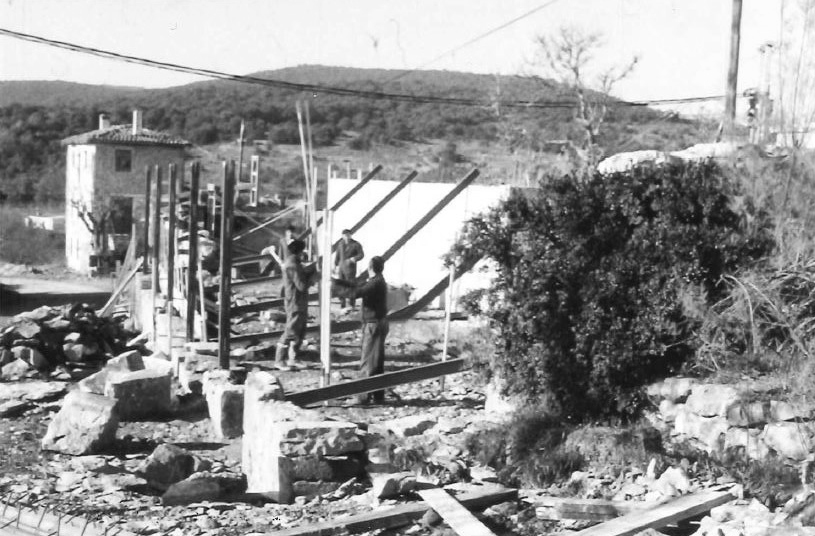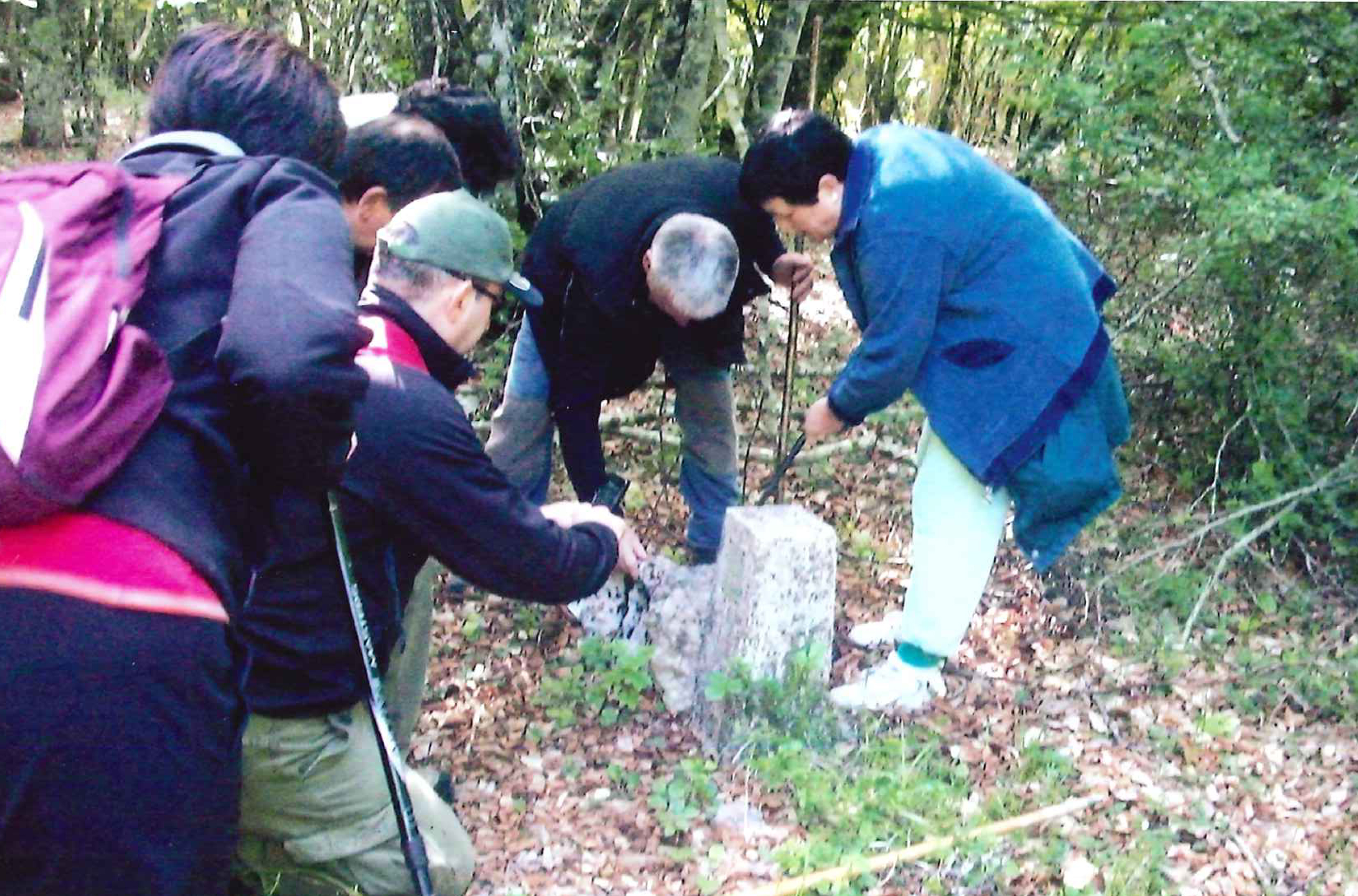Basque ethnography at a glance

Demolition and construction of a bowling alley by cooperative labour. Apodaka (Álava), 1984. Isidro Sáenz de Urturi.
In the villages of Álava neighbours must contribute to the maintenance of common property: buildings, paths and fields. Such provision of services to the community is locally known as vereda.
The chair of the Administrative Board would summon the commission with a peal of bells; nowadays a circular is mailed to all houses. Back in the old days the circular was passed on from house to house. The chair of the board took it to the nearest house, from there it was passed onto the next, and so on until the circle was completed. The circular announced the day and time of the gathering. Should it be a working day, bells were rung at the appointed time as a reminder, and matters of small concern were treated on Sundays after mass.
The majority of village meetings held in front of the church signalled the opening of stubbles and confined commons to livestock and determined the timing of animal husbandry on the stubble fields in the case of communities that did not employ a village herder, and the management and dynamics of pastures, such as when to let horses, sheep and goats graze.

New boundary marking between Arluzea, Apellaniz, Berrozi and Vírgala Mayor (Álava), 2015. Isidro Sáenz de Urturi.
Major communal tasks and the establishment of working groups to accomplish them were discussed at the council assembly: road repair and the agreed payment to the owner of the pair of oxen used for it, enclosure and inspection of woodland, drainage clearance of communal roads, help the ranger mark fire sites, maintenance of waterways and the mill pond, help recutting the millstone, snow removal from accesses to the village, etc.
On the day set aside for the purpose, the church bell rang eight times. Villagers turned up, each with his assigned tool, or as the case might be, with oxen and cart. The council would provide enough wine for the team to wash down the lunch with.
Young people under 16 years of age are not allowed at communal gatherings. Women have recently been incorporated. Participation at three gatherings is still compulsory in most villages and penalties are stipulated for failing to attend calls. Assistance is mandatory for inhabitants registered in the municipality, a representative from each household.
Isidro Sáenz de Urturi – Etniker Álava – Etniker Euskalerria Groups
Translated by Jaione Bilbao – Language Department – Labayru Fundazioa
Para más información puede consultarse: Gurutzi Arregi. “Auzoa” in Euskaldunak [The Basques], 3. 1980, pp. 601-656.

